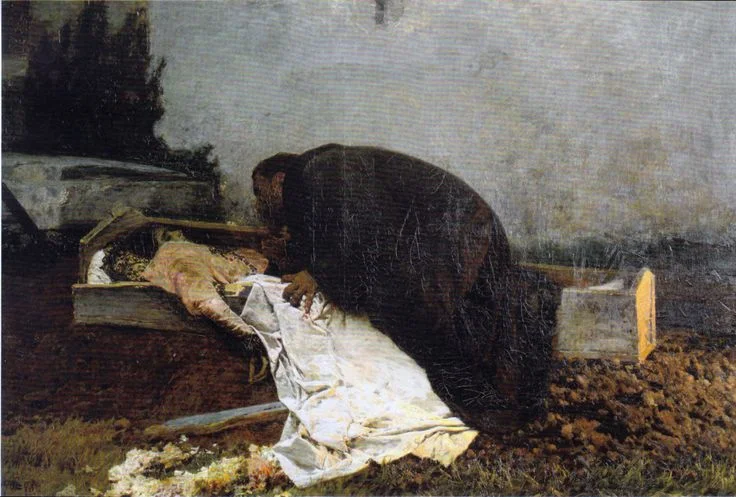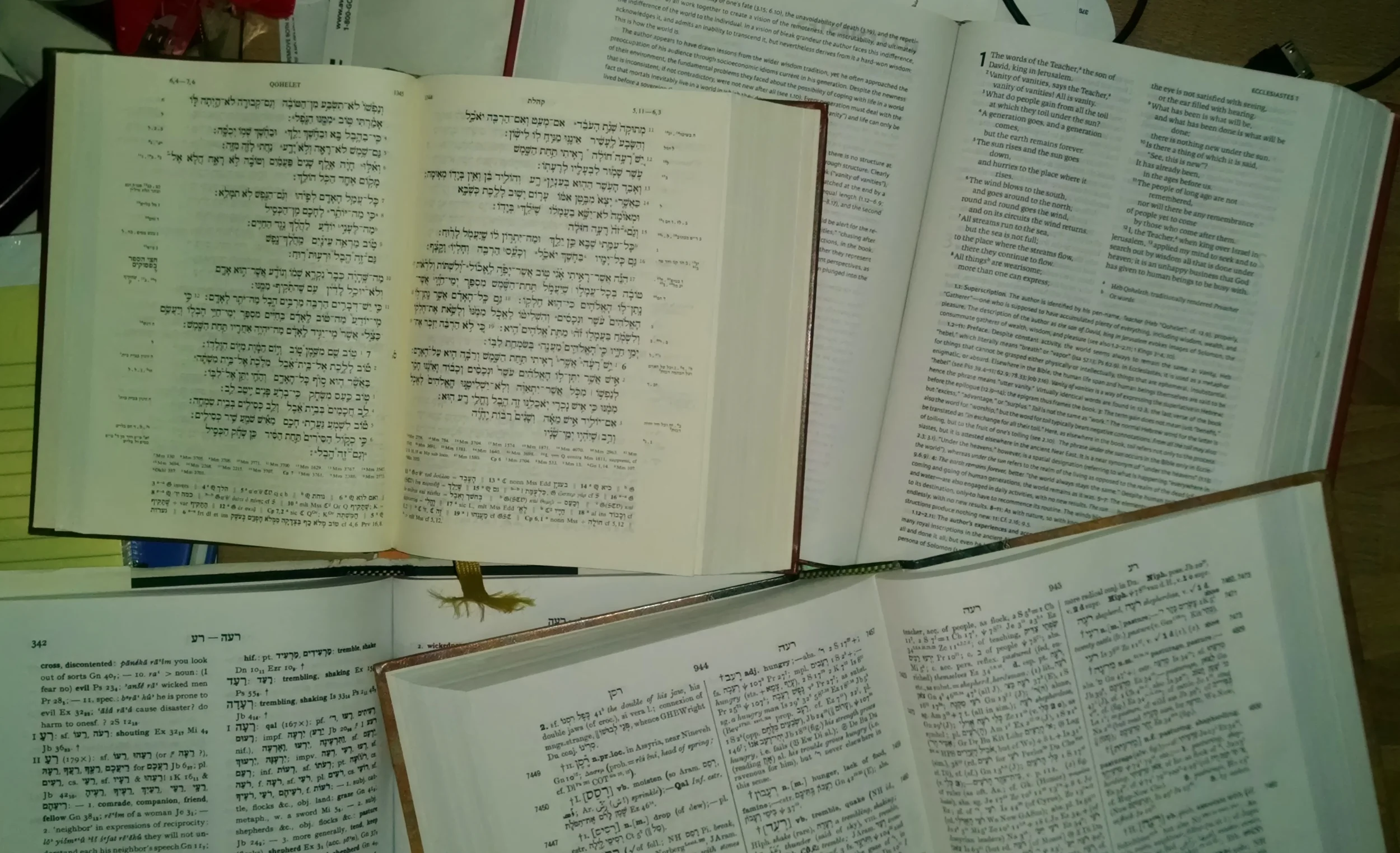In light of our Card Talk about The Bible’s Odd Silence On Necrophilia, a friend brought Leviticus 21:11 to our attention.
We hadn't included it in our previous post because we were allowing Numbers 5:2b and 19:11 to stand-in for verses dealing with the Bible's thoughts on becoming "unclean" through exposure to dead bodies
Also, we never considered this verse as being related to necrophilia until our friend mentioned it. And while he mentioned it as a joke, it got us thinking.
This verse illustrates one of times where humor and possible confusion come down to translations.
The Verse and Its Translations
This is how Leviticus 21:11 reads in the New International Version (1984):
He must not enter a place where there is a dead body. He must not make himself unclean, even for his father or mother.
Here it is in the New Revised Standard Version (1989):
He shall not go where there is a dead body; he shall not defile himself even for his father or mother.
Pretty straight forward: don't go near dead bodies, even if that dead person is one of your parents. However, there are other translations.
Notice how the ye olde timey King James Version (1611) renders the text:
Neither shall he go in to any dead body, nor defile himself for his father, or for his mother.
But also notice the much more modern English Standard Version (2007)
He shall not go in to any dead bodies nor make himself unclean, even for his father or for his mother.
Both of these translations seem to suggest a prohibition against necrophilia. If you were to read either of these translations, it would make some sense to think that they were about necrophilia.
So from whence comes the difference between these different translations? One word.
How the Hebrew verb bow' {בּוֹא} is translated makes all the difference in terms of how sexual the verse sounds. The verb means to enter into something, but that something is generally a place, not a person. While the word is sometimes used as a sexual metaphor, the vast majority of translations go for a non-sexual translation of the verb in this passage.
But without expecting the average reader to be a scholar of Biblical Hebrew, the context of the verse discounts this being a sexual prohibition.
Why Context Matters
Leviticus chapter 21 is a passage describing the actions of the Aaronic priesthood, for as verse 1 states:
The Lord said to Moses: Speak to the priests, the sons of Aaron...
The chapter goes on to list all the things the average priest should do/not do in order to keep himself from becoming ritually "unclean" (vs. 2-9).
It then gives the instructions for "the priest who is exalted above his fellows, on whose head the anointing oil has been poured and who has been consecrated to wear the vestment," i.e. the "High Priests."
In relationship to dead bodies,
note the differences between the regular priests and the high priests:
High Priest
Cannot make themselves unclean for any dead person except:
NO ONE.
(c.f. Leviticus 21:11)
Regular priests
Cannot make themselves unclean for any dead person except:
his mother
his father
his son
his daughter
his brother
his virgin sister
(c.f. Leviticus 21:2-4)
In context, the passage is clearly not sexual. That is unless the argument becomes that regular priests can molest the dead bodies of their relatives to their hearts' content, but high priests are cut out of that apparent joy.
But let's go a step further with this exploration.
Taking the verse all by itself, divorced from the rest of the testimony of Scripture, the book of Leviticus, this chapter in particular, and the preceding verses, it's still really, really, really hard to read this as being about necrophilia.
In fact, for the verse to be sexual in nature requires proposing one of the most disturbingly hilarious prohibitions recorded in the Bible. God’s view of humanity would be at a serious low, especially in relation to His belief in the moral sanctity of His own priests (but looking at some clergy today . . . well maybe there is a case to be made for divinity having a low anthropology).
For this verse to be sexual, it has to be read in a way that, honestly we wish we had thought of for a card in this game. God would have to be telling the High Priests:
Hey, don’t have sex with dead bodies, EVEN IF it’s your father or your mother! I know you might think that your parents are the exception to the 'don't have sex with dead bodies' rule, but they aren't. I know you think that since you came from them, and they gave you life, you can place your life-juice into their dead bodies. But no: you can’t. Not even for them. So don’t do it. Thus saith the Lord your God. Idiots.”
While this would be pretty amazing, it is clearly a stretch of the imagination.
Why We Even Bothered with this Addendum
There is so much more we could say on the subject of translations, but we won't here. That's for a longer post we will compose later on.
For those of you who read our Card Talks (and those of you who are about to start) you're aware that we delve into the Hebrew, Aramaic, and/or Greek when discussing a passage, not content to rely on an English translation alone. However, we do consult multiple translations, commentaries, scholarly tomes, and journal articles, and even some blogs.
Sometimes the humor of our cards are predicated on some translation's butchering of the Hebrew language which Christian culture has embraced.
"Male Prostitutes Working the the House of the Lord" (Deut 23:18),
"Haman Impaled on a 75-foot pole" (Esther 7:10), and
"A Pair of She-bears Mauling a Class of Kindergartners" (2 Kings s:23-25)
are three examples.
Sometimes we approach Bible text solely from our limited understanding, with modern lenses and biases and need to branch out to other resources to expand our understanding.
Sometimes we also need to laugh at older and newer translations of the Bible.
Sometimes we need to laugh at ourselves.
The point: we take this seriously while having fun.
And if you are just looking for a biblical justification to sleep with your dead relatives, we can't help you there.
But what do we know: we made this game and you probably think we're going to Hell.



